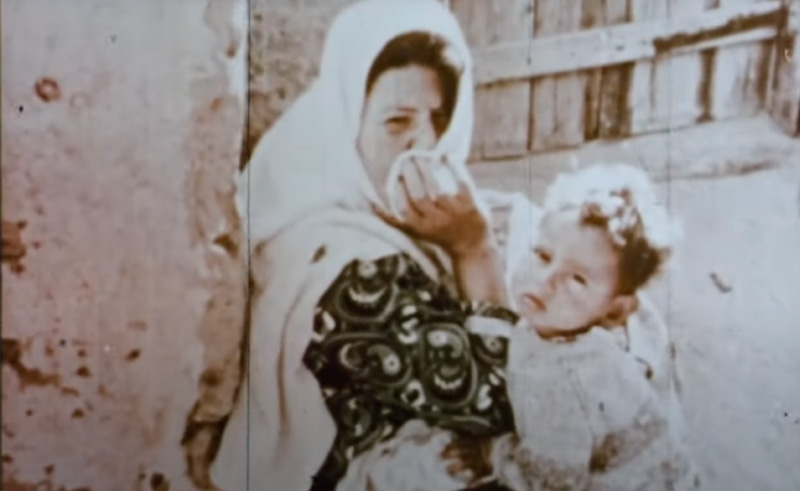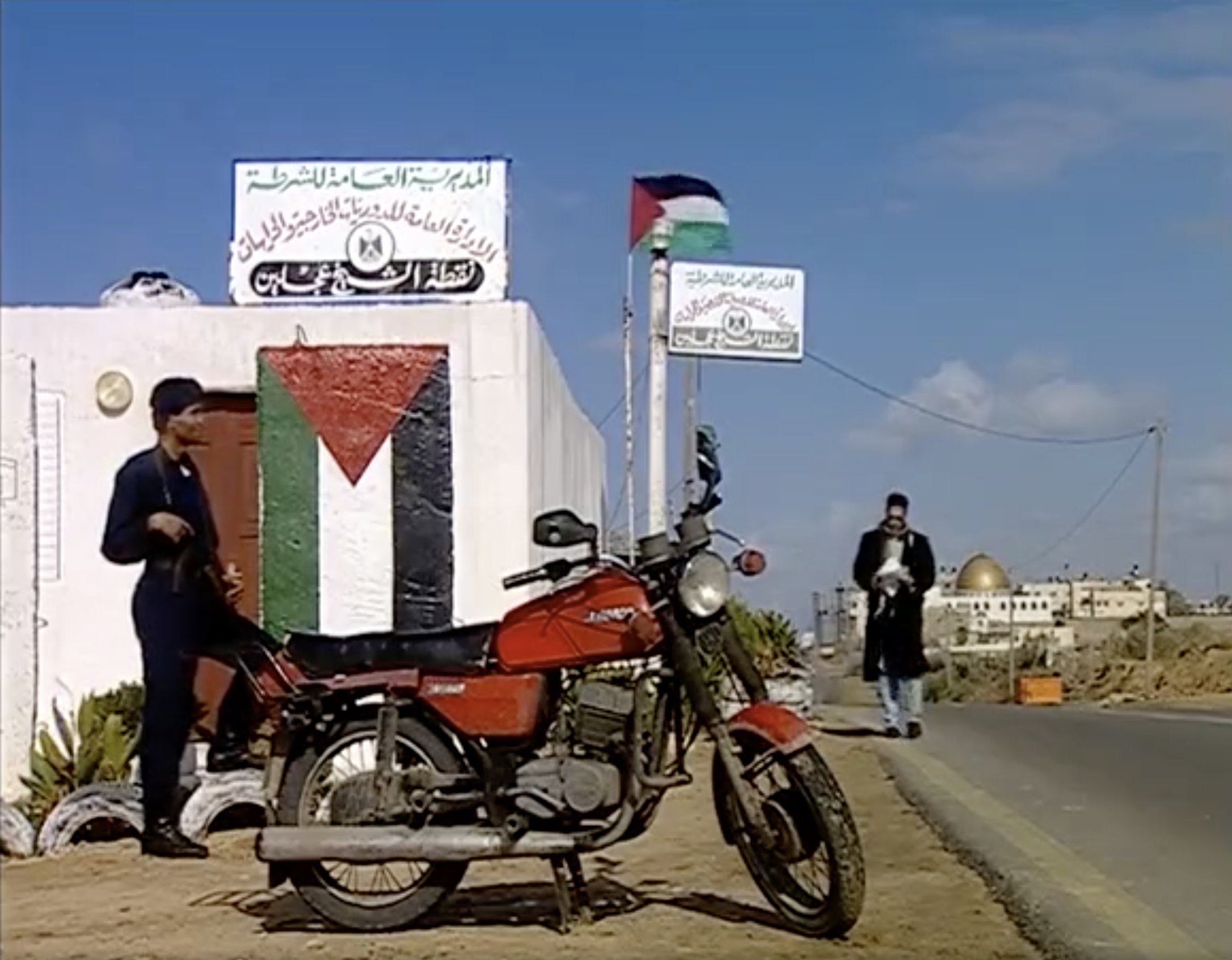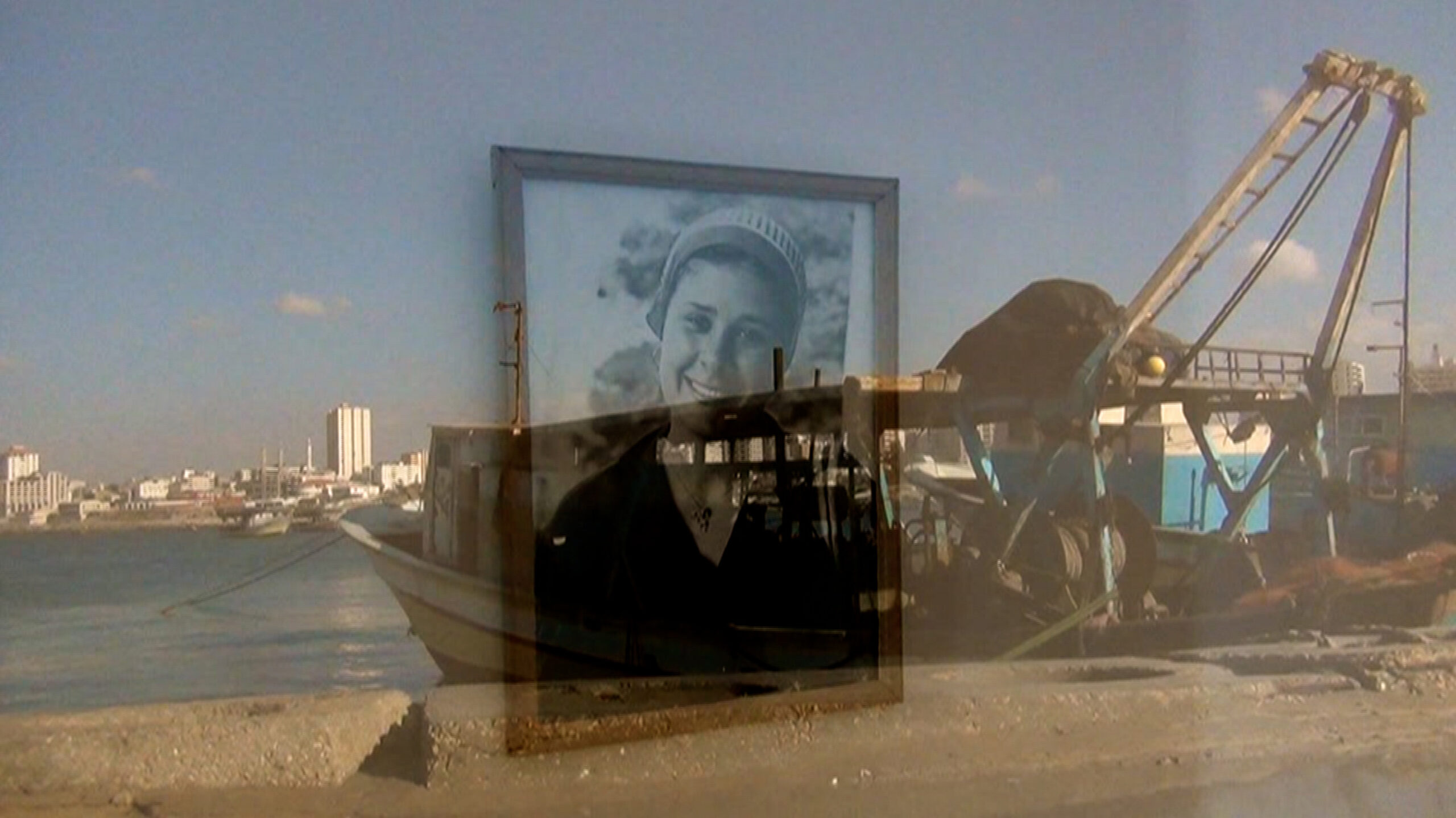Protecting the Palestinian Narrative
A Conversation with Gaza Film Unit’s Eslam Saqqa and Ayman Alazraq

At this year’s Uppsala Short Film Festival, Gaza Film Unit presented “Protecting The Palestinian Narrative”, a selection of four short films spanning several decades, which shed light on Gaza, the ongoing struggle for Palestinian liberation, and the realities of over 75 years of living under a violent apartheid regime.
The programme’s curators are Ayman Alazraq, an Oslo-based artist originally from the West Bank, and Eslam Saqqa, a broadcast engineer, film writer, and researcher from Gaza, now based in Cairo. Over a year into Israel’s genocidal campaign in Gaza, we speak to them about the film programme and Gaza Film Unit’s wider aims to document and build an archive in the wake of Gaza’s destruction, as well as sustain pressure on the cultural sector, to keep the Palestinian plight at the forefront of people’s minds.
Can you tell us about the foundation and mission of Gaza Film Unit and your roles within it?
ES: We founded Gaza Film Unit as a collective of writers, researchers, and filmmakers from Palestine, just after the 2021 Gaza War. At the time, I reached out to some filmmaker friends from Gaza, such as Mohamed Jabaly, who also works with the Palestinian Film Institute. PFI was a big help in getting everything off the ground. Early on we talked about starting an initiative to educate young people in Gaza on how to tell their stories. But things have really kicked off during this last year, specifically at the latest edition of the Cannes Film Festival, for which we made a publication about Palestinian films from 2021 to 2024. Since then, we’ve been discussing what we should do and how, which has formed three missions that all support each other.
The first is to document as much as we can, in and about Gaza, and we succeeded in building a team that films for us there. The second is to build an archive of what has been happening since October 7th, 2023, and even before—this is our biggest project. Thirdly, we take screening programmes to film festivals. The films we show are from Unit members or whose copyright sits with PFI. We welcome anyone who wants to join and participate in Gaza Film Unit; it’s not only for Palestinians.
The version of “Protecting the Palestinian Narrative” you presented at the Uppsala Short Film Festival is an adapted version of what you initially programmed for the Norwegian Short Film Festival. How did it take shape?
AA: I work in The Artists’ House in Oslo, where I help as a film programmer and cinema technician. I had started organising small screenings related to Gaza when the Norwegian Short Film Festival contacted me to work on a programme. I then approached Eslam, who suggested it’d be a great opportunity to work on this as part of Gaza Film Unit. Artists and filmmakers in Gaza don’t have the experience of travelling and exhibiting outside of Gaza, and aren’t able to talk with different audiences or be present at festivals. So we thought it was important to start with screenings, keep Gaza on the festival circuit, and keep telling people what is happening.
ES: We open the programme with Basma al-Sharif’s film Home Movies Gaza, because it raises many questions without answers. Initially, you don’t know what the sounds and images are, but you start to realise what it means to live in Gaza. The film shows how we lived 24 hours per day: the scenes of the camps and the noise of the drones, the sounds of weddings merged with sounds of military activity. When a drone is above your house, the television starts to glitch—details like this we know very well. When the TV shows interference, we know we are being watched.
Following that is Mustafa Abu Ali’s Scenes of the Occupation from Gaza, a crucial film due to its significance in the context of Israel seizing the Palestinian Film Unit’s archive during their 1982 invasion of Lebanon.
ES: It’s a very important work because it is one of the small pieces we have from our Palestinian archive, and it communicates one message: the situation in Gaza is not new, and it did not start after the 7th of October. Gaza has been forever suffering from the occupation, and it has been forever resisting. Mustafa Abu Ali is also the father of Palestinian cinema. He established the Palestinian Film Unit in the 1970s, and we hope to continue what he started. By doing this, we try to communicate that we will keep documenting and building our archive, even when it gets stolen, targeted, or erased.
We then continue with Cyber Palestine by Elia Suleiman, which many people haven’t seen even though Elia is well-known in Europe. It’s about a Christian couple in Gaza and has some funny moments. We use it to break the programme’s sadness. It’s still tragic, but it contains dark humour. The last film, An Orange from Jaffa, is by Mohammed Almughanni, one of the young directors from Gaza working today. It shows a complex situation in the West Bank but has a different angle than other ‘checkpoint movies’, as I call them. The conflict in it isn’t primarily between Palestinians and Israelis but between two Palestinians, one from the West Bank and the other from Gaza.

© Cyber Palestine (Elia Suleiman, 2000)
Naturally these films reflect on Palestinians’ lack of freedom of movement and on complex notions of home, but they also celebrate Gaza and its identity, while so much has now been destroyed. It’s a difficult but powerful tension that makes this programme so vital.
AA: The films in the programme all have a love for Gaza, which has become an archive today—everything you see, it’s not there anymore. We need to keep sharing its narratives and images, and keep looking at it as a place. I’m not from there but I always feel like it’s this place that has not yet been discovered. Though it’s in the news, no one knows what’s behind it all. I never managed to go because of the occupation, but I feel I know it because of friends and the media. I know the names of its streets and its cities. I feel in love with this place and it’s hard to imagine that it’s not there anymore as we know it. Eslam used to talk about the best falafel in Gaza, and I now know I will never taste that falafel.
ES: You miss a place you’ve never been to.
AA: It’s sad to talk about it, but we Palestinians always have this fear of losing our home. The idea of returning home is different for us than it is for other people. I have kids, so when we go to Palestine, I need to talk to them about the border, the checkpoints—about how to behave in this place. You never know what will happen to the West Bank, it could be next.
ES: And all of us have a different story. The occupation separated Palestinians into different groups so that there’s no one Palestinian identity. When you speak to someone from Gaza, they’ll have a different experience than someone from Nablus or Bethlehem, or Palestinian refugees in Lebanon or Jordan. The occupation worked very hard to make sure there’s no one narrative.
While in the West, those narratives get warped and suppressed in other ways. Our media and governments do not allow a rich or nuanced Palestinian story.
ES: The Palestinians must firstly ask themselves: who is a Palestinian? And secondly: when is a Palestinian defeated? I reject the narrative that Palestinians are always victims. There is also the Palestinian hero. We’re a mix. Yes, we’ve been losing land, losing people, losing rights, losing everything. But a narrative that only focuses on the victim role doesn’t help us.
AA: I disagree a little bit with Eslam, because we are victims. I have lived in Europe for fifteen years and can feel how much we are victims. In Norway, everyone teaches us about human rights and freedom of speech, but suddenly, in the last year, we’re not even human anymore. If this is happening in 2024, with the social media and access we have, and they still treat us this way, just imagine what it must’ve been like from 1948 till now. I don’t like the victim role either, but it’s not like we want it. By living anywhere in Palestine right now, you are a hero, just by being there.
But we are victims because the West is complicit in this genocide, because they refuse to tell people the truth, because our narrative is deleted from the media. There are no other words to describe how the West treats us. They question your right to certain slogans, to wear a keffiyeh, to wave a Palestinian flag. How is it possible that they accept Israel targeting hospitals, but they question our slogans? It shows you how we are valued as Palestinians, Arabs, Muslims in the eyes of the Western media.
Earlier this year, I attended a talk with Basma al-Sharif during which she reflected on living in Germany at this moment and her reasons for staying in a country so hostile to Palestinians. She framed it as a form of resistance, as being a thorn in the eye of the government. It’s an expression that counters the victim narrative and refuses to be cast aside.
ES: This is what I mean. When you’re a victim, they expect you to act like a victim, so you shut up and accept what you get. But when you act on it, they hate it. That’s one of the reasons we put on these screenings. For example, we cannot accept that the festivals we participate in will accept an Israeli programme afterwards. We believe that having us in the festival is a political opinion, a statement. We are building connections with people who want to learn more about what’s happening and with those in the industry who might, in the future, be able to make a difference in support of Palestine.

© Home Movies Gaza (Basma Alsharif, 2013)
I’d like to go into that a bit more. Many arts organisations consider themselves beacons of progressive values, yet in this crucial time, few are willing to show meaningful solidarity or take principled positions. It’s a denial of our collective political potential and wider responsibility. The weight of those failures has fallen on those who are often in the most precarious positions, artists and workers, who have been the ones withdrawing labour and suffering deplatforming.
AA: It’s a critical moment. Think of the Ukraine-Russia war and the World Cup in Qatar—the media told us about all the human rights violations by the Russian and Qatari governments. You boycotted Russian institutions and universities, and you boycotted Qatar. We saw what you did for Ukraine, and now you need to do something for us. It’s not just about publishing a statement to make yourself feel good. We need every arts institution in the West to understand that it’s time to boycott Israel. When we’re participating in festivals now, we bring it to the discussion.
There are many things going on inside institutions: people are asking why they’re not taking action and not boycotting. We need to keep asking these questions and use the right language. If you accept that this industry doesn’t call it genocide, if you accept festivals ignoring Gaza, you accept that they’ll do the same if it ever happens to you. If you care about human rights, you must say: “No, I’m not participating until you change”. LGBTQ+ rights are connected to Palestine. Workers’ rights are connected to Palestine. Everything is connected.
As you mentioned before, this genocidal campaign has been live-streamed to us 24/7 for over a year. It’s difficult to consider how we will reimagine what is lost and what representation is possible after the non-stop horror Palestinians have suffered and the rest of us have seen on our screens. How do you consider your missions to archive, document, and produce in that context?
ES: Exactly, what people have seen this year is beyond what you can create. People are suffering and dying live on our phones. It was one of the questions we asked ourselves: what can we add? For Palestinian directors and artists, it’s hard to consider what to do next. There’s no emotion we haven’t felt. With Gaza Film Unit, we choose to focus on documenting individual stories that you’ll never see in the media and to confront the dehumanisation of Palestinians. The difficulty is that people in Gaza have lost hope. They don’t think talking will do anything, and they are right, but we believe it’s our duty to continue. If you are a filmmaker who wants to do something, you can start by documenting, building archives and collaborations, and communicating with film festivals.
AA: Because of our history of losing our archives, it’s important to think about it in a different way, more collectively. We need to assemble all articles, all images, all films, whatever we have. We must document what the Western media did to us and how activists worked for us. It’s crucial for our identity, our history, and our narrative.
As a Palestinian living during this genocide, I can’t do much; I can’t even talk about it. But maybe one day, my son will look at it and say, “Ok, this is what was happening.” It will require a lot of people and a lot of effort, but we need to keep reminding them: we are here, and we will be here.
